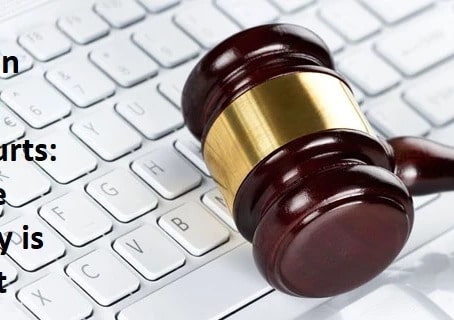
19 Oct How about using Artificial Intelligence to decide family and juvenile dependency court cases?
Absolutely, if every child was given the exact same opportunities in life, everyday, and their minds were all taught to think alike, then they should all react the same way to adversity and opportunity for the remainder of their lifetimes. Using Artificial Intelligence as the fact finder in this make-believe world should be great! I would be more than willing to try out the video game. In reality, what researchers are finding out is that Artificial Intelligence is just as biased as we are. The data being inputted is from past experience and it is as biased as we hopefully used to be as a nation. This is the data being used to predict future result. How do we start to change this biased past data for family and juvenile dependency courts? Jury trial rights, because for now, groups of parents are being underrepresented, and other groups of parents are being overrepresented and the current results need to change. Just how does AI measure love by the way? Help #PreventUGI (unwarranted governmental interference) in families by joining RaiseYourRights.
Online Dispute Resolution? That’s different because it allows you to bring your own advocates, therapists, attorneys, witnesses, etc. to the table and the other side gets to do the same. Online dispute resolution lets you tell your side of the story, including your experiences, your feelings, your thoughts, etc. and hopefully allows you a place and time to hear the other side in order to promote settlement. Private judges are sometimes paid to hear these matters and make decisions (paid for by the parents themselves) online or in person. I
Dispute Resolution (online or in person) is being expanded to include all sorts of cases, not just family and juvenile dependency cases, but also cases such as small claims, civil and even traffic and misdemeanors. These misdemeanor cases that would typically be heard in criminal court are being heard in a more civil manner to bring justice to the victims in the form of monetary settlements instead of simply jailing the accused defendant. Cases that are clearly criminal are tested to see if “restorative justice” in the form of monetary restitution is more effective. Think about the O.J. Simpson case. The final justice for the survivors came in the form of a monetary judgment.


